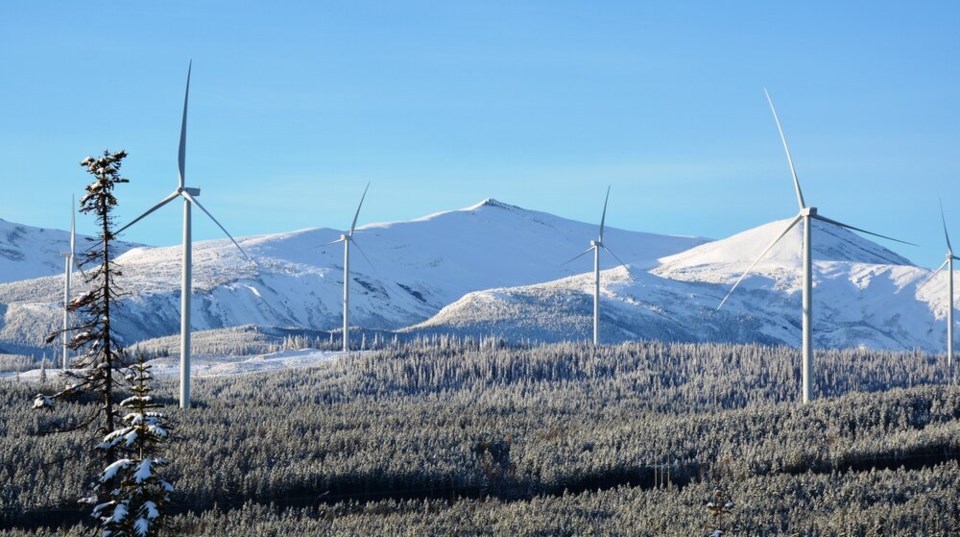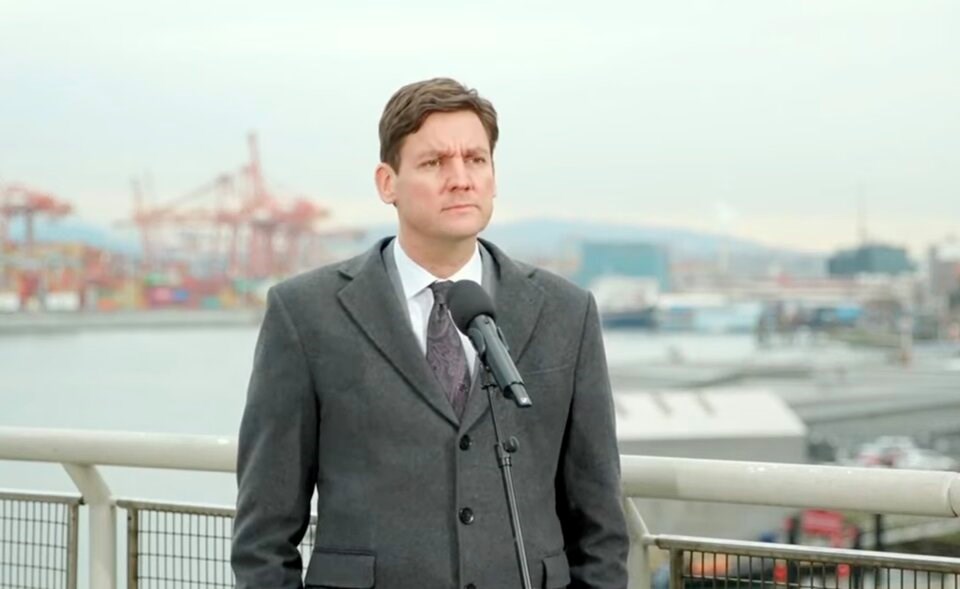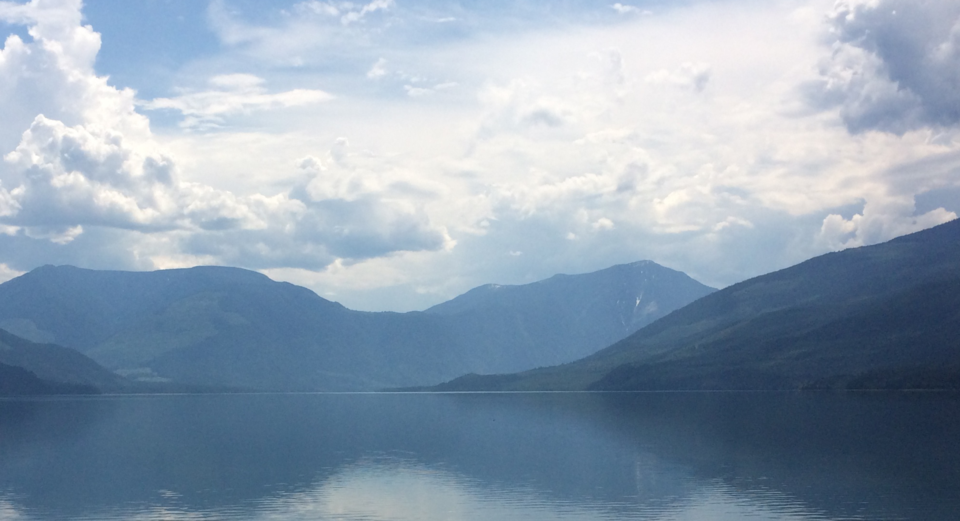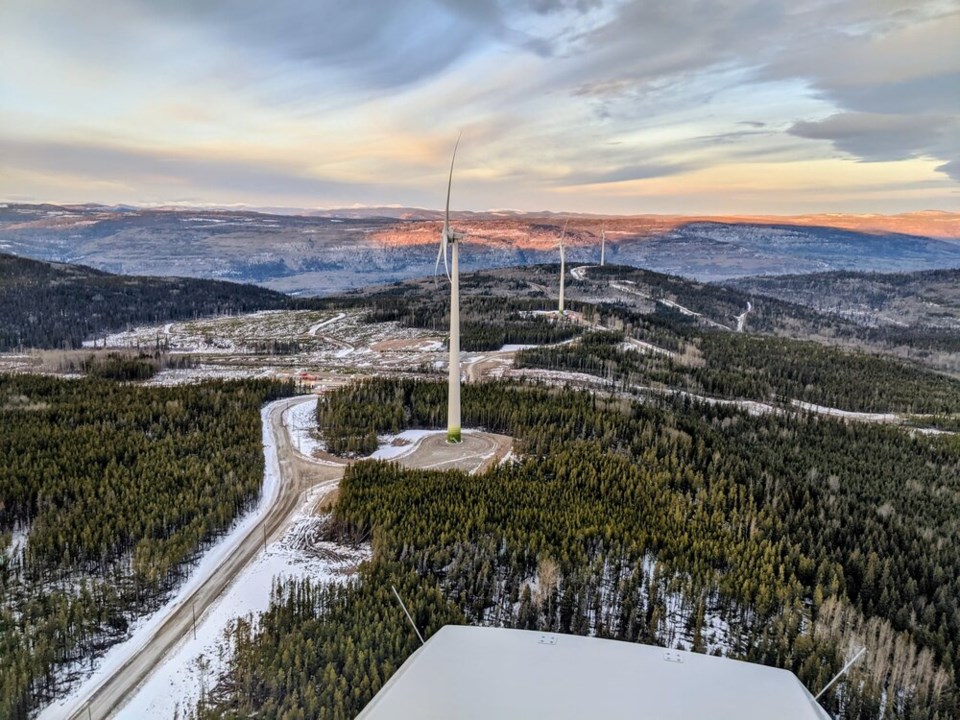Threats from U.S. President Donald Trump to impose 25 per cent tariffs on Canadian goods will drive up electricity costs in British Columbia, said the province’s energy minister.
At a press conference Thursday, Minister of Energy and Climate Solutions Adrian Dix said any effects on electricity prices would be subject to a transparent regulatory process and won’t be felt instantly.
“I don't think that will be the immediate effect, but 25 per cent tariffs…” said Dix. “I think those would have a profound impact."
The comments come as Saulteau First Nations Chief Rudy Paquette and senior vice-president of EDF Renewables Cory Basil met in Vancouver to celebrate the approval of the Taylor Wind Project outside Dawson Creek.
Last month, the 200-megawatt project was among nine wind projects fast-tracked for approval under BC Hydro’s 2024 call for more power generation. Those projects — along with another 104-megawatt solar energy project announced a week later near Logan Lake — are forecast to supply enough energy to power 500,000 homes.
That’s equivalent to the energy output of the massive Site C Dam, set to come online next year.

Together, the hydro, solar and wind projects are expected to make up for all of B.C.’s 15 per cent electricity shortfall previously forecasted by BC Hydro, according to Mark Zacharias, whose team at Clean Energy Canada have been tracking the numbers.
“This looks like it fills the gap,” said Zacharias.
Some, like former Minister of Environment Barry Penner, are less certain BC Hydro is on a path that would ensure the province has enough electricity.
Penner said B.C. was forced to import 20 to 25 per cent of its electricity over the past two years because of persistent drought.
“The plan to meet our [peak demand] shortfall in the late 2020s is to import electricity,” said Penner. “All of this creates an element of uncertainty.”
Penner, who now works with the advocacy group Resource Works, called for the B.C. government to slow its electrification plans.
“There’s a risk,” he said. “Not having enough electricity is a prospect that is too expensive to contemplate.”
Tariff impact on B.C. energy prices uncertain
It’s not clear how threatened U.S. tariffs could complicate the latest effort to boost B.C.'s electricity supply.
Last year, B.C. imported about 25 per cent of its electricity needs from outside the province, including about 80 per cent from the U.S.
Much of that comes from the U.S. Southwest, where overproduction of solar electricity has led to a drop in prices. Buying that cheap power from the U.S. has allowed BC Hydro to fill up its reservoirs, either for an emergency or to tamp down winter energy prices, said Zacharias.
So while BC Hydro imported 16 per cent more electricity than it exported since 2019, the value of all that traded electricity still fell in B.C.’s favour, with the utility earning a net $1.5 billion.
Trading electricity, said Zacharias, keeps costs lower for ratepayers.
Any major energy tariffs would inevitably undermine that trading regimen.

Roland Clift, an adjunct professor at the University of British Columbia's Department of Chemical and Biological Engineering, said the prospect of major U.S. tariffs on electricity should push B.C. toward operating as an “energy island.”
“The threat of tariffs means, Oh, hang on, we’ve gotta be more independent, therefore we have to get a move on with this,” said Clift, a past member of the UN Intergovernmental Panel on Climate Change.
“Any combination of wind and hydro can put us in a political position to do that.”
It's an economic outlook the B.C. government appears ready to act on.
“Whatever happens in the next few weeks, we have to face it now so that we're better prepared every single time this happens,” said Dix.
“We need to get these projects built.”
Conservative leader says B.C. approach to Trump's tariff threats 'crazy'
Earlier this week, B.C. Premier David Eby said “everything is on the table” should Canada be forced to respond to potentially crippling tariffs threatened by the United States.
Eby’s government recently released an assessment of how a 25 per cent tariff on all Canadian imports would impact the province. The preliminary assessment found B.C. would see the loss of 124,000 jobs and $69 billion in economic activity over the next three years.
On Tuesday, Eby said B.C.’s side of a Canadian levy package could extend to U.S. alcohol, electricity sent down the West Coast, bidding on government contracts, and even charging American trucks travelling through the province to supply Alaska.
“We should really be thinking carefully about spending our money in that country,” Eby said of any British Columbians planning travel in the U.S.
B.C. Conservative Leader John Rustad said he agreed with making B.C. more energy independent, but described the confrontational approach the B.C. government is taking on Trump’s tariff threats as “asinine.”
“It’s just, it’s crazy,” said Rustad. “We are very dependent on the Americans.”
“We're losers if we get into a trade war.”

In 2023, B.C. sold more than $8.2 billion in energy to the U.S., more than any other export. About $4.8 billion of that was from sales of natural gas. Another $1.1 billion came from the sale of electricity, much of which comes through a series of long-standing agreements under the Columbia River Treaty.
Last summer, negotiators from both countries reached an interim agreement to renew the treaty, which also governs how water flows into the U.S. and feeds the Columbia River.
Asked whether the treaty — and the vast quantities of electricity and water it provides to the U.S. — could be used as a trade weapon to counter potential U.S. tariffs, Dix suggested negotiations would continue.
“I’m not going to talk about our tactics or response that's being developed by lots of people, the premier, the prime minister and others,” he said.

B.C. needs to map its long-term energy needs, critics agree
For Rustad, many questions remain. He said he supported independent power projects but worried removing the environmental assessment process to fast-track their construction could lead to unintended outcomes. The wind projects, he said, have a “significant footprint” that extends beyond windmills impacting migratory birds.
“What's the impact on, you know, the movement of wildlife? What's the impact on winter range?” he said. “Let's take a look at it. What needs to be done?”
The bigger question, said the Conservative leader, is what will happen after 2030 when electricity demand outpaces the recently approved wind and solar projects. He said B.C. should be considering using nuclear and gas to create electricity — not “intermittent, unreliable projects.”
“What is our energy need going forward, 20, 40, 50 years from now? None of that's being talked about,” said Rustad.
Zacharias, whose group takes a very different position from Rustad on the expansion of fossil fuels, agreed with Rustad that B.C. needs to map out where it’s going to get its energy from over the coming decades.
At the same time, he said tariffs could spur provinces to better connect their grids and share hydro, wind and solar energy in a way that would ensure power is cheap and available.
“It is a Canadian advantage that we do have a very robust, clean grid,” said Zacharias. “But if we were able to share loads across Canada, it would certainly be in our economic interest as well.”


